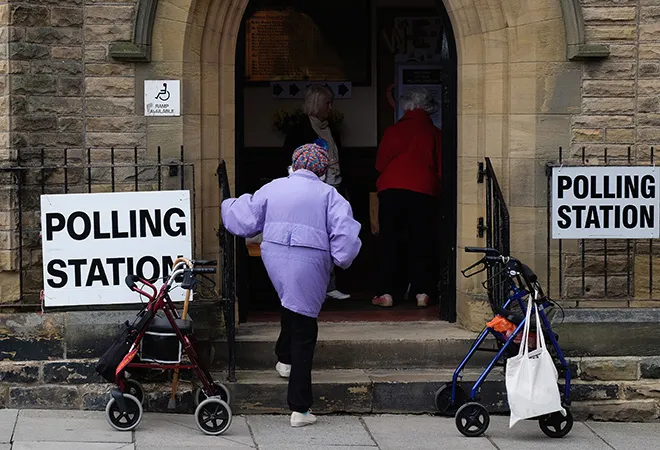
Finally, the United Kingdom marches on to its D-Day. The general elections are being fought on the vexed issue of Brexit, Britain’s impending departure from the European Union (EU) and the results, it is being hoped would put to end this seemingly never ending drama featuring Britain and the EU. What started off as an internecine Conservative Party struggle which then Prime Minister David Cameron thought he could lay to rest, once and for all, by calling for a referendum, has now seen two Prime Ministers depart and the third one seeking a fresh mandate from the people of Britain to finish off what his predecessor started all the way back in 2016. But no one is holding their breath if this would indeed result in a final outcome to the satisfaction of all key stakeholders.
The British voters will be going to polls today in the third election in four years and the two main contenders for the nation’s top job – Labour Party’s Jeremy Corbyn and the incumbent Boris Johnson of the Conservative Party – come with their own sets of problems and baggage. This has been termed by one British commentator an "appalling choice" between a “totalitarian” and “compulsive liar.” Because of this focus on the two key candidates this election appears more like a US style Presidential election than the traditional British parliamentary election.
Boris Johnson desperately sought these elections, haranguing his Labour opponent about not agreeing for one. His main focus has remained on making this election only and only about Brexit. He is promising a process weary British public that if he were to be given a strong mandate, he would deliver the outcome the British public voted for in June 2016 – that of taking Britain out of the EU. His predecessor, Theresa May, had also called the general election in 2017 hoping for a larger mandate but instead ended up losing seats, resulting in a hung parliament. This forced May to enter into a confidence and supply arrangement with the Democratic Unionist Party (DUP) to support a minority government. After her Brexit withdrawal agreements were rejected by the British Parliament thrice, May had to resign and Johnson took over. He was categorical that he would take Britain out of the EU by 31 October 2019, deal or no deal, but when he also could not take the British Parliament along, he had to call for general election.
Johnson has a certain charisma which makes him popular and he has been a leading figure of British public life for decades now. But what he continues to struggle with are questions about his trustworthiness. He is widely seen as a person who is too clever by half, always ready to build and destroy relationships for his own ambitions. In an election which is all about the British public’s connect with the nation’s body politic, his antics and behaviour has often led to more questions than comfort. Even Nigel Farage, the leader of the Brexit Party and a purported friend of Johnson, has been emphatic in appraisal when he said: “I've known Boris on and off for 25 years, and he is a likeable, entertaining personality,” but “would you absolutely trust him? No.”
Yet if the opinion polls are to be believed the Conservative lead over Labour remains strong with the Tories on course for a decent majority in the House of Commons based on the current projections. In this, the Tories have got help from the Labour leader, Corbyn, who has simply been a disaster for the Labour. He has had no clear line on Brexit for years now, shifting positions depending on the immediate needs. He has been hammered on both sides – by those who remain staunchly loyal to the EU and by those who strongly want to leave the EU. Not surprisingly, he wants to shift the political conversation away from Brexit. So he is promising one of the most left platform ever offered by the Labour Party in recent memory. He is promising a sweeping programme of nationalisation which would include the railways, electricity distribution, Royal Mail, water utilities and even the broadband. Corbyn’s Labour Party is nothing like the one under Tony Blair and Gordon Brown, the last time Labour was in power.
But this in the ultimate analysis is the Brexit election and so ultimately the choice for the British electorate will be between Johnson who is promising to deliver Brexit by Jan 31 if he wins a majority and Corbyn who will negotiate a new Brexit deal and then grant a new EU referendum. For a nation tired of the political wrangling in Westminster which most do not even comprehend, this is an opportunity to break the logjam and give a new direction to the British polity. But the British voter is capable of spring remarkable surprises, as they have shown in recent years. With polls tightening in the final days and the very future of Britain at stake, the final destination still remains far from clear.
The views expressed above belong to the author(s). ORF research and analyses now available on Telegram! Click here to access our curated content — blogs, longforms and interviews.




 PREV
PREV


